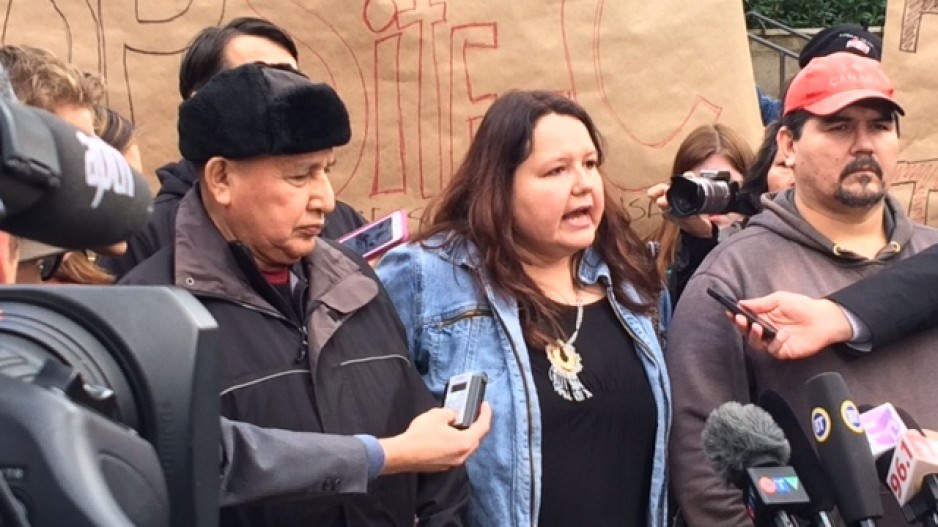Protesters who have been holding up work on the $9 billion Site C hydroelectric dam project on the Peace River have been told to pack up and leave by a BC Supreme Court Judge.
B.C. Justice Bruce Butler ruled in favour Monday, February 29 of BC Hydro’s application for an injunction against a camp of protesters that the utility claims have been preventing work crews from clearing land to make way for the dam.
Protesters include Ken Boon of the Peace Valley Landowners Association and a number of Treaty 8 First Nations, who say the dam will infringe their treaty rights.
Preliminary construction work on the dam began in July 2015, and the court heard that $700 million had been spent so far, and that BC hydro expects to spend about $600 million per year.
It also heard that $2.35 billion in contracts have been awarded – a total of 17 so far. Ten of those contracts are with First Nations, including members of Treaty 8.
But protesters set up a camp in December, even going to far as to helicopter in two temporary cabins. The court heard that protesters have prevented logging contractors from clearing land.
Butler noted there is some urgency to BC Hydro’s injunction application, since the clearing work that is being prevented from occurring is scheduled to be completed by March 31.
BC Hydro has argued that a one-year delay of the work on the dam could cost up to $420 million.
Protesters counter that an economic study commissioned by the Peace Valley Landowners Association concluded that there would actually be savings from delaying the project, since BC Hydro is expecting there will be a surplus of power once the new dam begins producing electricity.
Butler said it was not his task to weigh any potential savings against costs.
“There is no doubt…a one-year delay would cause a substantial increase to construction costs,” he said.
Butler said the project had been subjected to an “extensive assessment process” that gave the project both federal and provincial approval. He also noted that a number of applications for a judicial review have been rejected by the federal court.
Butler agreed with BC Hydro’s argument that the protesters were trespassing, since BC Hydro has all the necessary approvals to conduct clearing on Crown land.
In granting the injunction, Butler also issued an enforcement order, which takes effect as of midnight tonight (February 29.)
Asked if she planned to obey the order, Saulteau First Nation member Yvonne Tupper, one of the protesters named in the injunction, said: “I plan to respect the injunction, yes.”
But Stewart Phillip, president of the B.C. Union of Indian Chiefs, said Monday’s ruling isn’t necessarily the final chapter in the ongoing saga.
He pointed to a number of appeals of federal court decisions and a treaty infringement complaint. The Blueberry First Nation, a Treaty 8 signatory, is suing the province for cumulative impacts on treaty rights.
“This fight is by no means over,” Phillip said. “This was a minor skirmish in BC Supreme Court. It certainly is not the final chapter in this sordid narrative of Site C dam.”
The Site Dam project has been challenges in court by three separate federal judicial review applications by the Peace Valley Landowners Association, the West Moberly and Prophet River First Nations, and the Mikisew Cree and Athabasca Chipewyan First Nation in Alberta.
But in August 2015, the federal court rejected the applications for a judicial review.




